The Standards Organisation of Nigeria (SON) has stressed the need to patronise made-in-Nigeria goods as a way of stimulating economic growth and the much needed development, which the country has been yearning for.
The Acting Director General, SON, Mr. Paul Angya, noted that Nigeria has no business importing products it has competitive and comparative advantage of producing, saying that made-in-Nigeria goods that meet the requirements of the Nigerian Industrial Standards (NIS) can compete anywhere in the world as they are produced adhering to global best practices.
Angya who stated this during a courtesy visit to Wemco Steel Mills Company Limited recently, called on government procurement agencies to make Nigeria the first point of call during procurement as they are heavy spenders, adding that it would help fast track the country’s quest for industrialisation.
The Acting DG said, to attract and earn foreign exchange for Nigeria, the agency has developed standards for agricultural products to be competitive in order to earn foreign exchange, noting that this move was also coming on the heels of efforts by the present administration to diversify the nation’s economy away from oil.
He said, “The competitive advantage that Nigeria has in competing with other countries is in agriculture and allied products and since the incident of the slump in oil prices and the concomitant slump in the nation’s economy, the need to attract foreign exchange has geared the government towards diversifying the economy.
“To achieve this, they have identified agriculture. Considering the fact that Nigerian produce still face rejection at the international market, we decided to develop standards and quality in agricultural products to improve agricultural produce to meet the requirements of the international market and also compete to attract investments to earn foreign exchange for the country.
“The issue of the scarce foreign exchange is still a major challenge affecting local manufacturing, but we expect that when the entire country begins to look inward by producing all that we need here, the issue of foreign exchange scarcity will be addressed. The market for steel products is bigger than what is being currently produced. We are saying that government procurement services should patronise locally made goods. The steel billets coming out of this factory are of substantial standard quality and can compete anywhere in the world. We have to continue to plough back our resources instead of filtering away our hard earned foreign exchange.”
He commended Wemco for complying to standards, adding that despite the harsh business environment for manufacturing, the company still stood its ground to produce quality steel products in the country.
“I want to commend this company because in spite of the cry and the harsh operating economy for manufacturers, they are still in full production and this is because they produce quality products which are in high demand. Local manufacturers must embrace standards; work with the standards boards to improve the quality of their products in order to compete both locally and internationally.”
”They have imbibed the tenets of standards; their quality continues to improve because they have continued to work with us to improve their quality. What we are saying is that when the users of steel patronise locally made steel, it will go a long way to improve the economy of this country, because there will be no need for importation because there is enough production of steel products to meet local demands,” he added.
He said SON was working with the Nigerian Society of Engineers (NSE) to develop standards, codes in order to regulate the steel industry while also calling for their patronage to boost the steel sector.
”In some project sites where a huge number of steel products are being used, almost a 100 per cent of the steel products are imported. It is important that our engineers, our government procurement offices, supervisors of projects should as a deliberate policy patronise made-in-Nigeria steel products that are meeting all the minimum requirement of the Nigeria Industrial Standards (NIS). When we make standards in this sector, the NSE is always part of the technical committee that produces the standards, so we work with them closely,” he added.
”As Nigerians, the first point of call is made-in-Nigeria products where it meets the NIS and by patronising local products, we are ploughing back our hard earned resources into the country instead of filtering away our foreign exchange on what we have here. We have no reason or whatsoever to import steel products into the country. What I have seen here is very encouraging and I believe there is hope for Nigeria. We do not have many issues with the quality of made-in-Nigeria Nigeria products. On the average, Nigerian manufacturers conform to standard requirements, but our issues are with products coming from overseas. The Manufacturers Association of Nigeria (MAN) is also partner in standards development and conforms to our standards,” he said.






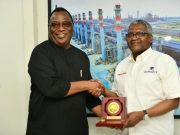
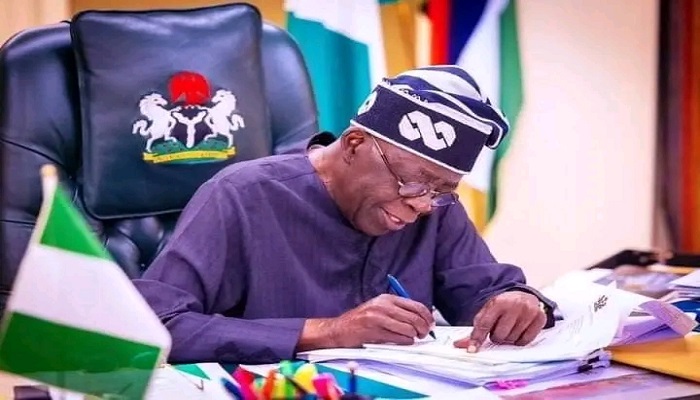

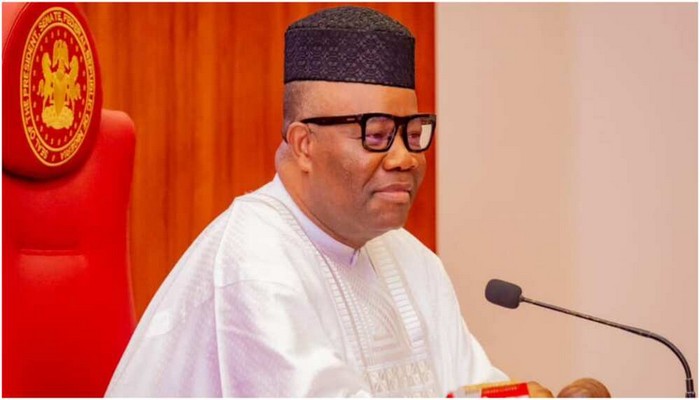

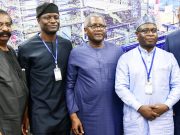






















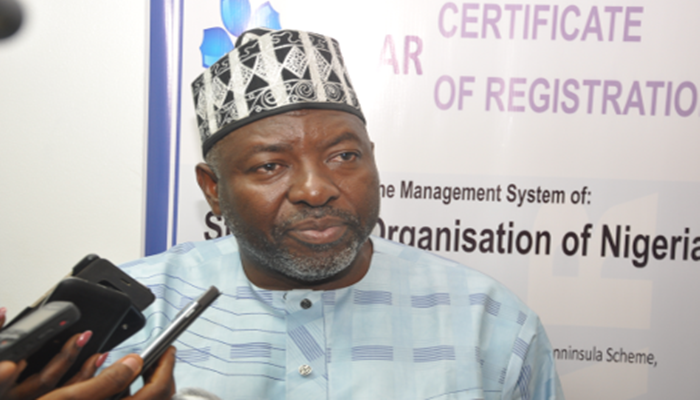

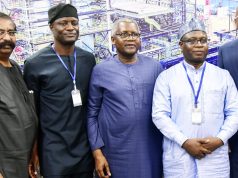

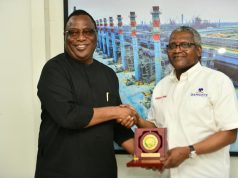


Comments are closed.